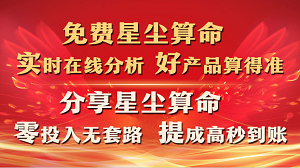GRS認證輔導,GRS4.0相對于前一版本變化的關鍵點是什么
概述:GRS4.0于RCS2.0已重磅發布,那么相對于前一版本變化的關鍵點是什么呢?先看一下紡織交換組織的一段話:
Textile Exchange proudly announces the release of Recycled Claim Standard 2.0 (RCS) and
本信息已過期,發布者可在"已發商機"里點擊"重發"。
GRS4.0于RCS2.0已重磅發布,那么相對于前一版本變化的關鍵點是什么呢?先看一下紡織交換組織的一段話:
Textile Exchange proudly announces the release of Recycled Claim Standard 2.0 (RCS) and Global Recycled Standard 4.0 (GRS). The newly revised versions of these #GlobalRecycled standards include updates that solidify the RCS and GRS as the leading standards for recycled materials in the apparel industry and ensure continued growth in other industries, including metal, plastics, electronics, packaging and beyond.
Over the past year, a group of stakeholders was convened to review Textile Exchange’s recycled standards. The International Working Group (IWG), led by Textile Exchange, included recyclers, manufacturers of recycled product, other recycled standard owners, brand and retail users of the standards, and certification bodies. Companies, including Unifi, Geentanjali Woolens, Hohenstein, H&M, and Global Organic Textile Standard were among the working group members.
“It was my honour being a part of the IWG for revision of the RCS & GRS Standards. The entire process was extremely democratic; everyone’s comments and suggestions were considered debated and then finalised. I thoroughly enjoyed dedicating my time to the IWG. The final standards are excellent, precise and address most of the processes and concerns involved in Recycling. We are confident that the implementation of the new RCS 2.0 and GRS 4.0 will encourage a lot more manufacturers to apply for certification making it more globally accepted.”-Deepak Goel, Geetnajali Woolens, PVT LTD.
The Recycled Claim Standard (RCS) and Global Recycled Standard (GRS) provide verification of recycled materials, and then track the material through to the final product. The GRS includes additional social, environmental and chemical processing requirements. In 2016, the number of units certified to the GRS grew from 595 to 961, a growth of over 60%. The RCS saw an almost 200% jump from 78 units in 2015 to 220 in 2016.
Key Changes to the #GlobalRecycled Standards
A key change in both standards is the introduction of the Reclaimed Materials Supplier Agreement. This document provides more visibility to the suppliers of reclaimed materials. Guidelines have been introduced for added clarity and consistency of recycling claims, including post-consumer and pre-consumer.
A key change in the Global Recycled Standard is the adoption of ZDHC’s Manufacturing Restricted Substance List v1.1 (MRSL) (http://www.roadmaptozero.com/programme/manufacturing-restricted-substances-list-mrsl-conformity-guidance/). The MRSL has been developed by the industry to address intentional use of potentially hazardous substances. The MRSL will replace GRS’s previous Prohibited Substance List. The Zero Discharge of Hazardous Chemicals (ZDHC) Programme takes a holistic approach to tackling the issue of hazardous chemicals in the global textile, leather and footwear value chain.
Other changes and additions include new examples of accepted recycled inputs, updated wastewater limits, and clarifications. You can read more details about the changes online: www.TextileExchange.org/Integrity.
Companies currently certified to one of the standards will be required to comply with the new versions by July 1, 2018. A list of approved Certification Bodies, currently certified companies, and all related documents are available on Textile Exchange’s website:
從上述內容可以看出
這兩種標準的一個關鍵變化是引入了再生材料供應商協議。本文件為再生材料供應商提供了更多的可見度。已經引入了指導方針,以使回收的要求更加清晰和一致,包括后消費者和消費者。
一個關鍵的變化在全球回收標準的采用ZDHC制造業受限物質清單v1.1(MRSL)(http://www.roadmaptozero.com/programme/manufacturing-restricted-substances-list-mrsl-conformity-guidance/)。該行業已開發了MRSL,以解決有意使用潛在危險物質的問題。MRSL將取代GRS先前禁止的物質清單。危險化學品的零排放(ZDHC)項目采取了一種全面的方法來解決全球紡織品、皮革和鞋類價值鏈中有害化學品的問題。
其他的變化和增加包括新的被接受的回收投入的例子,更新的廢水排放限制和澄清。
The Global Recycle Standard (GRS) was originally developed by Control Union Certifications (CU) in 2008andownershipwaspassedtoTextileExchangeJanuary1,2011.Thepreviousversionofthestandard, GRS 3.0, was released in2014.
全球回收標準(GRS)最初由世優認證(CU)于2008 年制定,并于2011 年1 月1 日將所有權轉
讓給了紡織品交易所。該標準的上一版本GRS 3.0 于2014 年發布。
Textile Exchange also owns and administrates the Content Claim Standard (CCS), the Recycled Claim Standard (RCS), the Organic Content Standard (OCS), the Responsible Down Standard (RDS), and the Responsible Wool Standard (RWS). These standards are designed to ensure chain of custody for preferred materials, and to provide labeling tools for final product claims.
紡織品交易所的使命是加快紡織品行業的可持續發展。只有在采取措施確保持續帶來實際和有意義的改變時,這種加速才會發生。要求充分理解問題所在,并力求證實所提出的要求。第三方標準認證實現了這一點。
[本信息來自于今日推薦網]
- ctswlj發布的信息
- AEO認證咨詢,企業管理的條件連續2個季度單季規范申報率超過
- 青島AEO認證,浙江AEO認證,廈門AEO認證...
- COSMOS認證輔導,企業選擇有機護膚品主要看四個方面
- 浙江COSMOS認證,廣州COSMOS認證,杭州COSMOS認證...
- RWS認證輔導,RWS被用來為最終產品提供一個保管系統鏈
- 杭州RWS認證...
- SMETA驗廠輔導,為了推動社會審核標準和監督實踐的整合
- 1. 背景 說明Sedex會員道德貿易審核(SMETA)如何與 Sedex發展相匹配(給買家、供應商和審核員儲存、 分享和報告供應鏈信息的平臺),SMETA審核所使 用的標準...
- 羊毛RWS認證輔導,企業所有不符合項在規定時間糾正好才能出證
- 浙江RWS認證,杭州RWS認證,東莞RWS認證...
- GOTS認證輔導,實現紡織品標簽協調化和透明化的一個重要措施
- 泰州GOTS認證,杭州GOTS認證,佛山GOTS認證...


